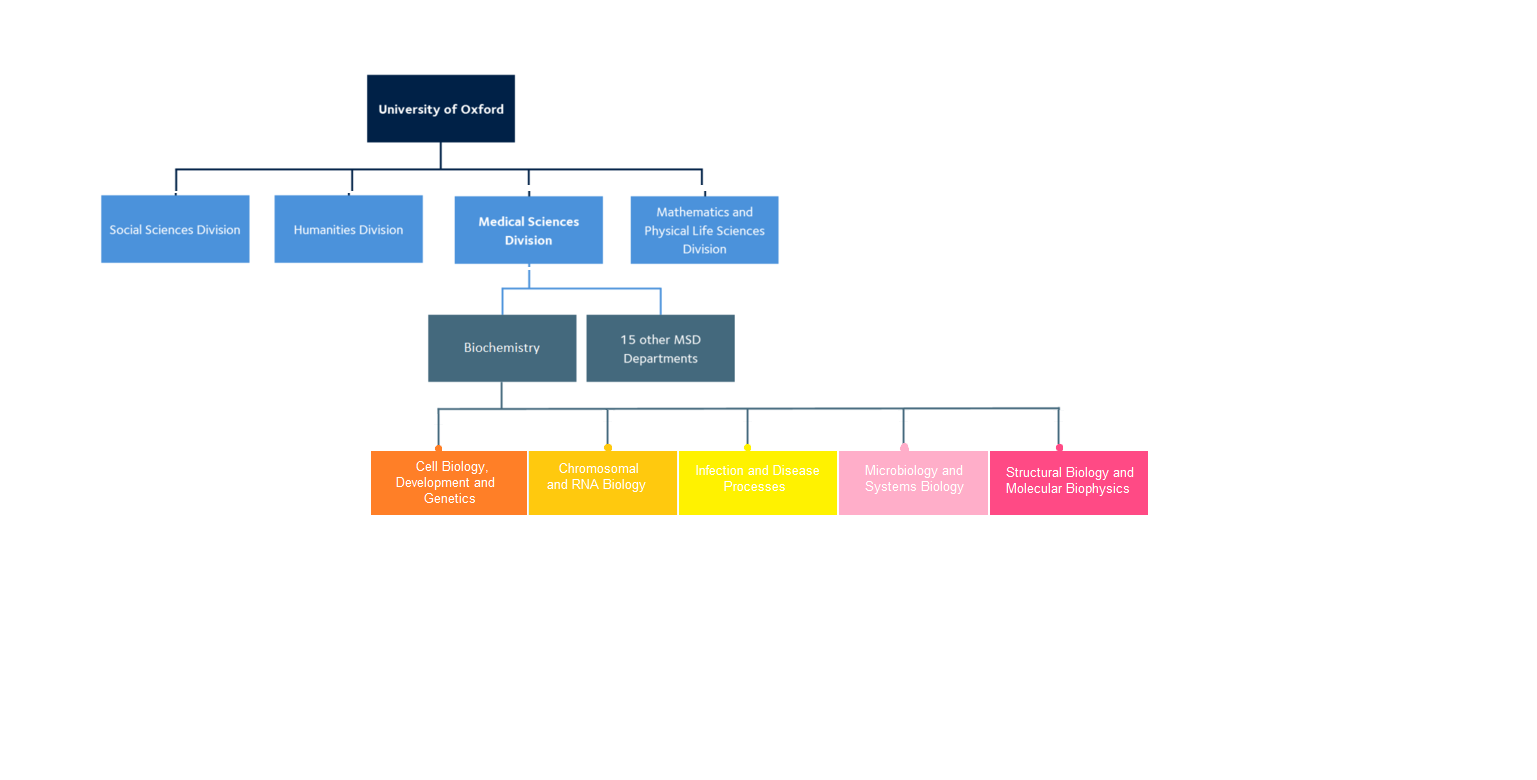is made up of around 850 talented researchers, students and support staff who share a common passion and purpose – to explore, explain and advance human life.
are loosely grouped into five broad research areas: Cell Biology, Development and Genetics; Chromosomal and RNA Biology; Infection and Disease Processes; Microbiology and Systems Biology; and, Structural Biology and Molecular Biophysics. Research groups are organised across these Research Themes and many groups span more than one theme.
a part of the Medical Sciences division at the University of Oxford, and are dedicated to teaching and biomedical research of the highest quality. Many of our researchers have achieved international recognition and our department has been home to four Nobel or Breakthrough Prize winners.
of curiosity and commitment to excellence doesn’t just drive our current research – it benefits the next generation of thinkers through our teaching. We have approximately 450 students on a variety of undergraduate and postgraduate courses, and many of our group leaders and postdoctoral researchers are involved in teaching. This allows our students to learn from world-class minds and engage directly with cutting-edge knowledge.
is central to our community. We enjoy the vibrant mix of backgrounds, skills, nationalities and genders represented in the department – it helps us benefit from fresh perspectives and ideas. We’re particularly committed to removing any obstacles that might prevent women and those from minority groups from excelling in their academic careers – so we’re proud to have been given a Silver Award by the ECU’s Athena SWAN Charter, a programme that promotes equality and diversity in higher education.








